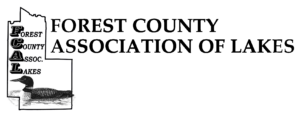NATIVE PLANT PICK-UP WILL BE FRIDAY 8-4 IN THE COURTHOUSE SQUARE (by the tank).
I had to jump the gun last weekend and mow my lawn for all the family that was coming for Memorial Day. Many people have committed to not mowing their yards in May, allowing flowering plants to grow to help provide food for pollinators. Before you stow away your mower for May, let’s look at what options you can take to help pollinators this Spring.
Sometimes – it depends on your lawn. Lawns that consist solely of turfgrass provide little to no resources for pollinators. However, lawns that also contain low growing flowering plants, such as
dandelions, can provide nectar and pollen to a wide range of pollinators. Lawns that are mowed higher (more than 3”) and less often tend to have more flowering plants, supporting a greater
diversity of pollinators and other insects. However, if you let your lawn go unmowed and then mow more than one-third of the height at once, this can be stressful to both the turfgrass plants and the mower. For more information about how to take care of your lawn, see our Extension publication about lawn maintenance.
If you want to add to your lawn’s value to pollinators, add flowering plants to your lawn. Low-growing flowering plants like Dutch White Clover (Trifolium repens), Self-heal (Prunella vulgaris) and Creeping Thyme (Thymus serpyllum) will add diversity to the flowering plants in your yard and can tolerate mowing and foot traffic. You may also consider purposely planting a bee lawn. Bee lawns are low-input lawns intentionally planted and managed with flowering plants to provide food for pollinators. Learn more about bee lawns from the University of Minnesota.
If you don’t have evidence of a pest problem, or the pesticide provides limited or short term control, consider delaying the application or eliminating it altogether. Before applying an insecticide yourself or from your lawn care provider, confirm that you have a problem that warrants insecticides. Insecticides are rarely needed in Wisconsin lawns. If it is determined that you need a pesticide in your lawn, then do your research about how it might impact non-target organisms. For more information, see our Extension publication, Conservation of Native and Domestic Pollinators in Managed Turfgrass Landscapes.
Pollinators forage for food on blooming flowers throughout Wisconsin’s growing season from April to October. A healthy pollinator habitat provides sources of nectar and pollen from diverse, flowering vegetation across the entire growing season. Native plants like flowers, shrubs and trees, provide the best food resources for pollinators throughout all stages of their life. Nonnative plants can also provide food for pollinators. If you are worried about being stung, plant away from high traffic/play areas. Here is a list of just a few native and non-native* plants that bloom in early spring. You might already have some of these in your yard and neighborhood. Check out the planting guides linked in the Resource Library on our Pollinator website!
- Native flowers: Virginia Bluebells, Pasque Flower, Eastern Columbine, Lanceleaf Coreopsis, Self-heal
- Native flowering trees/shrubs: Serviceberry, Maple trees, Oak trees, Plum & cherry trees, Black Chokeberry
- Non-native species – Lenten rose, early season bulbs (crocus, daffodils, hyacinths, tulips, etc.), Eastern redbud, Magnolia, apples & crabapples
Pollinators require shelter and places to nest to survive and grow their offspring. Delay your spring clean-up and/or tilling of these places until late spring (late May) after pollinators have emerged as adults from their overwintering nests. To learn more about how to provide shelter and nesting habitat for pollinators, you can refer to the Xerces Society’s Nesting and Overwintering Habitat publication.
There is more than one way to help protect and support pollinators. Allowing flowering plants to grow in your lawn area in the early spring and beyond or planting good sources of pollen and nectar to provide them food. Pollinators also need protection from pesticides and habitat disturbances. All these practices can be done independently or together to support pollinators in your area. A good starting place to see if your lawn and property can support Wisconsin’s wild pollinators is our home habitat assessment tool.
